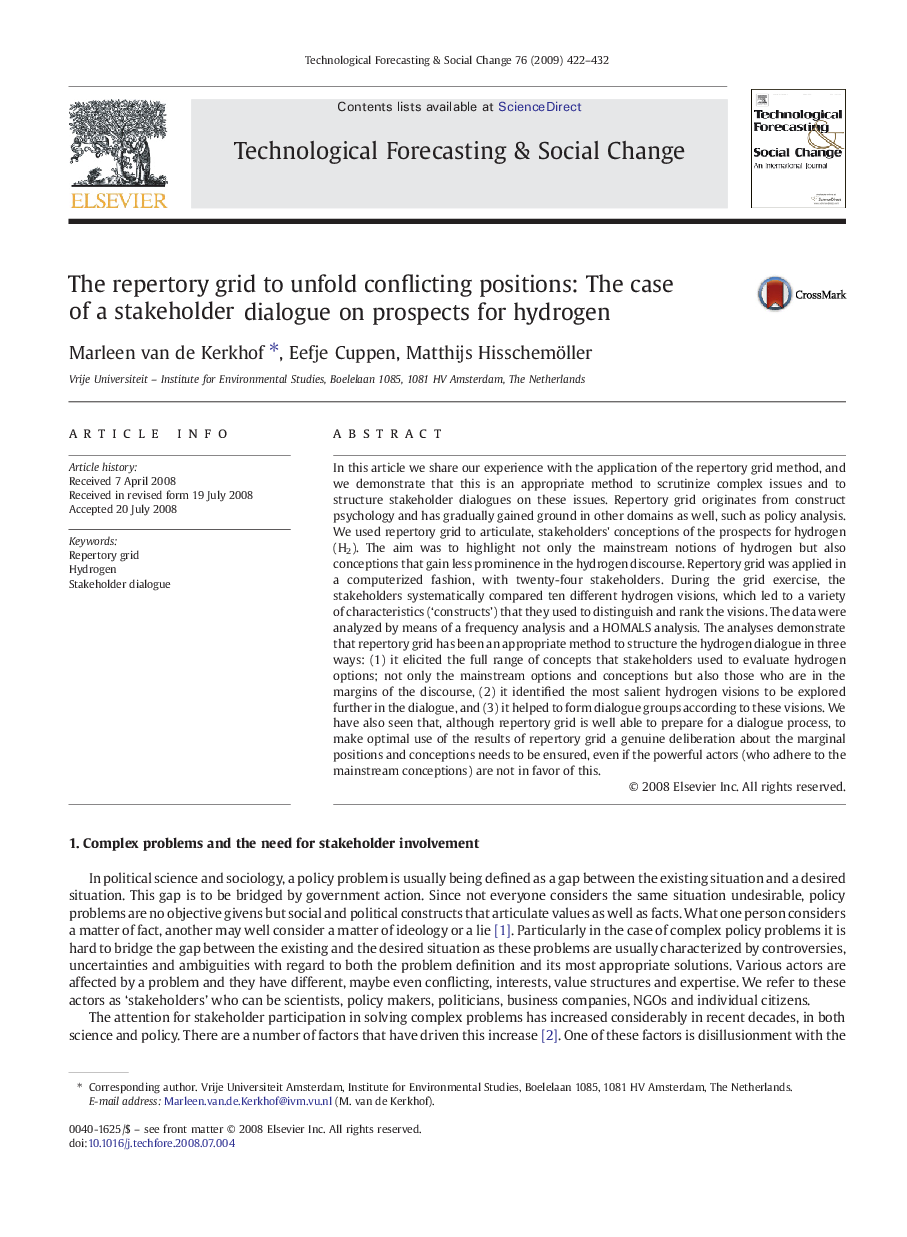| Article ID | Journal | Published Year | Pages | File Type |
|---|---|---|---|---|
| 897097 | Technological Forecasting and Social Change | 2009 | 11 Pages |
In this article we share our experience with the application of the repertory grid method, and we demonstrate that this is an appropriate method to scrutinize complex issues and to structure stakeholder dialogues on these issues. Repertory grid originates from construct psychology and has gradually gained ground in other domains as well, such as policy analysis. We used repertory grid to articulate, stakeholders' conceptions of the prospects for hydrogen (H2). The aim was to highlight not only the mainstream notions of hydrogen but also conceptions that gain less prominence in the hydrogen discourse. Repertory grid was applied in a computerized fashion, with twenty-four stakeholders. During the grid exercise, the stakeholders systematically compared ten different hydrogen visions, which led to a variety of characteristics (‘constructs’) that they used to distinguish and rank the visions. The data were analyzed by means of a frequency analysis and a HOMALS analysis. The analyses demonstrate that repertory grid has been an appropriate method to structure the hydrogen dialogue in three ways: (1) it elicited the full range of concepts that stakeholders used to evaluate hydrogen options; not only the mainstream options and conceptions but also those who are in the margins of the discourse, (2) it identified the most salient hydrogen visions to be explored further in the dialogue, and (3) it helped to form dialogue groups according to these visions. We have also seen that, although repertory grid is well able to prepare for a dialogue process, to make optimal use of the results of repertory grid a genuine deliberation about the marginal positions and conceptions needs to be ensured, even if the powerful actors (who adhere to the mainstream conceptions) are not in favor of this.
